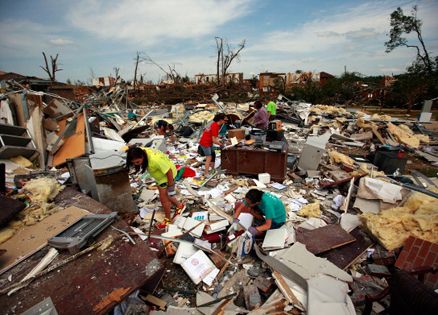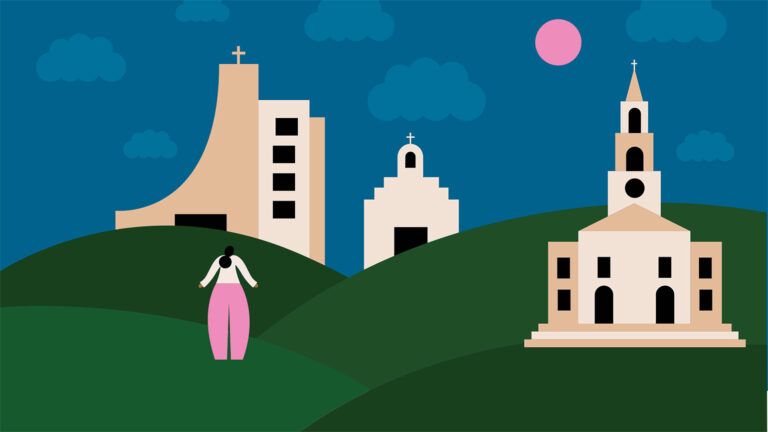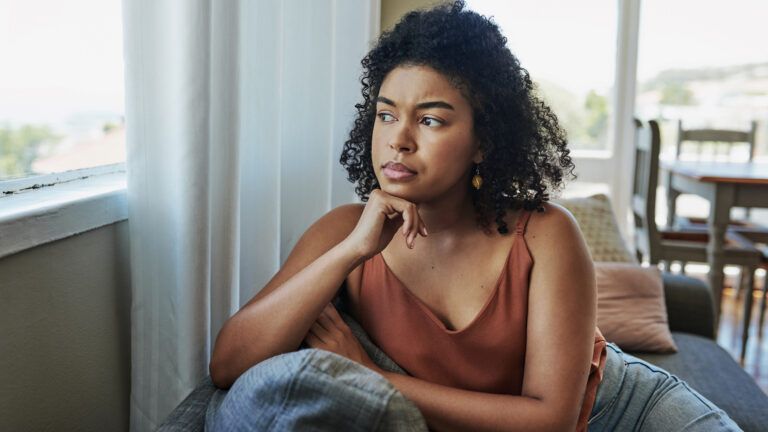It’s impossible not to be touched in some way when catastrophes, natural or man-made, hit. Most of us absorb the horrors on TV or YouTube—towns crushed by the tsunami in Japan, oil gushing out of pipes a mile below the surface in the Gulf, a wide swatch of Tuscaloosa, Alabama reduced to rubble. Or, we read about people like Cynthia Wood surviving —along with seven kids and three dogs—a tornado that sliced through her home.
As the post-disaster weeks go by, re-building and recovery take center stage. Tents and trailers are set up, debris removed. But what of the survivors? How do they recover mentally and emotionally in the face of sudden devastation? How do you re-build a shaken faith?
Traumatic events affect us deeply—mind, body and soul. Intense, erratic emotions, thoughts and behaviors are common. Mental turmoil wears on the body, causing stress, headaches, nausea or heart strain. Such stress can in turn damage relationships. A survivor might withdraw, avoiding activity and people.
When Andi O’Conor, who was on vacation at the time, heard the news that her Colorado home had burned down she literally, physically started shaking.
“It was that weird body adrenaline thing,” she recalls. She then emailed friends asking them to spread the word. “That’s the real excruciating part, telling people,” she says. “Each time you tell someone it’s as if it just happened; they react like you did when you first found out and you’re plunged back into that energy of shock and dismay. Even after you’ve had a day or two to get used to it, telling people opens up that early wound all over again.”
For many, like Andi, what comes next is a “dark night of the soul.”
“This is when your faith is tested in epic ways. I was asking, What if everything I think is wrong, what if the universe isn’t a benevolent place? What if God is going to drop me on my butt after all these years? But I realized my faith hasn’t changed. When all’s well it’s easy to say, ‘Things happen for the best,’” but, she adds, when a catastrophe hits maintaining that faith is a true test.
Ultimately she discovered grace in the generosity of friends and strangers, and through helping others–her neighbors had also lost their homes. She also heard from people all over the globe who read her blog. Hearing that her essays on loss and healing have helped others “has been my real gift,” says Andi.
Most people use inherent coping skills such as relying on a social support network–like Andi did–reestablishing a daily routine, finding the information they need to carry on their lives.
When Amy Knowles, assistant professor at King College in Bristol, Tennessee began her research on survivors of the Hiroshima atomic bomb, she said her reaction was to pigeon-hole people into two categories: the folks who just “got by,” and those who went beyond that, who thrived.
“But,” she says, “I found that most people would weave back and forth. In the end, every single one of them exhibited at some point, the ability to overcome the world’s most terrible disasters. The biggest thing I took away was amazement at how God allows us to overcome adversity.”
Still, she acknowledges, that while survivors may be resilient, it’s common for memories of the traumatic event to return many years later. The Hiroshima survivors could vividly describe smells, sounds and sights from that day. Several admitted that, even 65 years later, certain sensory perceptions triggered acute memories.
Survivors of a catastrophe involving multiple losses: any combination of spouse, children, home, neighborhood will likely be in a daze, because there is no way to prepare psychologically for being blindsided with that much disaster. “It’s ‘bereavement overload,’” says Dr. Karla Vermeulen, deputy director of the Institute for Disaster Mental Health at State University of New York, New Paltz.
The best way to cope is to reach out to family, friends, clergy–people who know and support you, says Vermeulen. “It’s a process of adjustment, rather than recovery.” Recent research defies the old view that victims’ best step toward healing is immediately talking about their trauma. While some people may feel better sharing what they’ve endured, for others, discussing it too soon may evoke the ‘fight or flight’ response that emerged when the event took place.
Faith too can suffer in the midst of catastrophe. It’s often a long road before some survivors recognize God’s presence in their recovery. Particularly for people who believe even unconsciously, “If I pray,” or “If I go to church, no harm will come to me.” The pillar of their belief is upended.
“It becomes ‘Why me, why did this happen, what did I do wrong?’” says Alice Graham, executive director of the Mississippi Coast Interfaith Disaster Task Force, who coordinated pastoral counseling following Hurricane Katrina and the Gulf oil spill. “A disaster can become a crossroads, either to a fuller understanding of God, or when it goes negative, God becomes punitive and disconnected.”
The most important thing for caregivers is to simply let survivors talk. For as little or as long as they need. Graham re-assures people that they could express anything about their faith without risking indictment. She and her fellow counselors were there just to listen.
Eventually she gently asks, “How has God shown up in ways that surprised you?” Post-Katrina the answers were tales of generosity: people sharing their food, volunteers that drove in from other states, donations that piled up.
Graham also found surprising sources of survivor resilience. While leading post-Katrina therapy sessions for seniors (which she called Caring Conversations), she saw many African-Americans recalling their fortitude in the face of prejudice and segregation. “If I can survive Jim Crow I can survive this” was the attitude.
Another surprising source of resiliency? The Gulf Coast’s ability to celebrate the moment. Whether it’s the Saints winning the Super Bowl or the annual Mardi Gras party or a jazz band procession at a funeral, “It’s the strong community,” says Graham. “It says ‘God is still active and present in spite of what we have experienced.’”
Whether God’s presence is revealed in a parade, or a shared plate of food, or a newfound desire to repay generosity, the common denominator is human connection. In the face of pain, resilience is found in our relationships with family, friends and faith.
Here are 5 online resources that can help survivors of catastrophes:
APA’s Tips for Recovering from Disasters and Other Traumatic Events
The American Psychological Association offers ways to understand what are the normal responses to catastrophic events in order to help individuals cope with the psychological and emotional after-effects.
The National Child Traumatic Stress Network
The organization’s website has a wealth of information to help children, families and communities who have suffered traumatic events.
The U.S. Department of Veterans Affairs’ National Center for Post Traumatic Stress Disorder
This site has resources both for disaster first responders, and for victims.
A Toolkit for Disaster Planning
The best way to ensure your resilience after disaster? Be prepared. This website offers everything you need on hand in case of emergencies.
Ambiguous Loss
This is the website of Dr. Pauline Boss, author of Ambiguous Loss (Harvard University Press). The book and site define what it is (death without verification), a situation faced by many survivors of the tsunami and Katrina.
Download your FREE ebook, The Power of Hope: 7 Inspirational Stories of People Rediscovering Faith, Hope and Love






